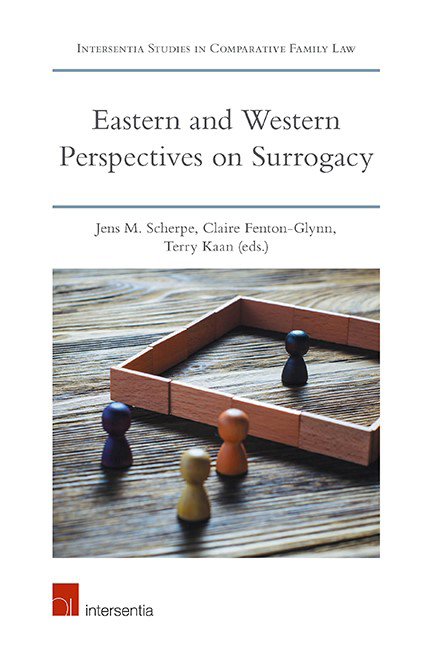Book contents
- Frontmatter
- Preface and Acknowledgements
- Contents
- List of Contributors
- Introduction
- Questionnaire
- PART I WESTERN PERSPECTIVES
- THE PROHIBITIVE APPROACH
- THE TOLERANT APPROACH
- THE REGULATORY APPROACH
- Greece
- Israel
- South Africa
- New Zealand
- Portugal
- Iceland
- THE FREE MARKET APPROACH
- THE INFLUENCE OF INTERNATIONAL COURTS
- PART II EASTERN PERSPECTIVES
- THE PROHIBITIVE APPROACH
- A TOLERANT APPROACH?
- REGULATION THROUGH PROFESSIONAL MEDICAL BODIES
- FROM FREE MARKET TO REGULATION
- PART III COMPARATIVE PERSPECTIVES ON SURROGACY
- Index
- About the Editors
South Africa
from THE REGULATORY APPROACH
Published online by Cambridge University Press: 26 June 2019
- Frontmatter
- Preface and Acknowledgements
- Contents
- List of Contributors
- Introduction
- Questionnaire
- PART I WESTERN PERSPECTIVES
- THE PROHIBITIVE APPROACH
- THE TOLERANT APPROACH
- THE REGULATORY APPROACH
- Greece
- Israel
- South Africa
- New Zealand
- Portugal
- Iceland
- THE FREE MARKET APPROACH
- THE INFLUENCE OF INTERNATIONAL COURTS
- PART II EASTERN PERSPECTIVES
- THE PROHIBITIVE APPROACH
- A TOLERANT APPROACH?
- REGULATION THROUGH PROFESSIONAL MEDICAL BODIES
- FROM FREE MARKET TO REGULATION
- PART III COMPARATIVE PERSPECTIVES ON SURROGACY
- Index
- About the Editors
Summary
GENERAL LEGAL FRAMEWORK
Steps to regulate surrogacy in South Africa predate the advent of democracy. In 1987, in a much publicised case, Karen Ferreira Jorge gave birth to triplets, born of the gametes of her daughter (she was the gestational mother and the biological grandmother). At the time there was no legal regulation for this unprecedented state of events, leading to a project committee of the South African Law Commission (now the South African Law Reform Commission (hereafter ‘SALRC’) being appointed to investigate the issue. Although this Committee had completed its work in the 1990s, there was no further legislative action (notwithstanding a post-1994 Ad Hoc Parliamentary Committee being convened to conduct public hearings on surrogacy) to finalise new laws. Ultimately surrogacy was added as a final chapter to the Children ‘s Act 38 of 2005, which came fully into force in April 2010. The project committee which had deliberated upon the development of the omnibus Children’ s Act had not considered surrogacy during its lifespan, so the impetus to add surrogacy to the Children ‘s Act came from within the SALRC. The initial work of the SALRC has survived, and many of the current provisions can be traced to the original report. The location of regulations on surrogacy within the overarching tenets of the Children’ s Act has, however, shaped the current interpretation of the provisions, as will be shown below. By way of a preliminary point, the Act allows only altruistic surrogacy: commercial surrogacy is barred.
South Africa stands out for its progressive constitution, with two particular clauses worthy of discussion. First, s. 28 provides a mini charter of children ‘s rights, including the injunction that the best interests of the child are of paramount concern in all matters affecting the child. As a justiciable constitutional right, the best interests provision has provided an important standard which has at times been overriding. Second, South Africa’ s equality clause (s. 9) prohibits discrimination on a wide range of bases, including gender, marital status and sexual orientation. All have proved to be relevant in the context of surrogacy, which is equally available to hetero and same-sex couples.
- Type
- Chapter
- Information
- Eastern and Western Perspectives on Surrogacy , pp. 185 - 202Publisher: IntersentiaPrint publication year: 2019
- 1
- Cited by



